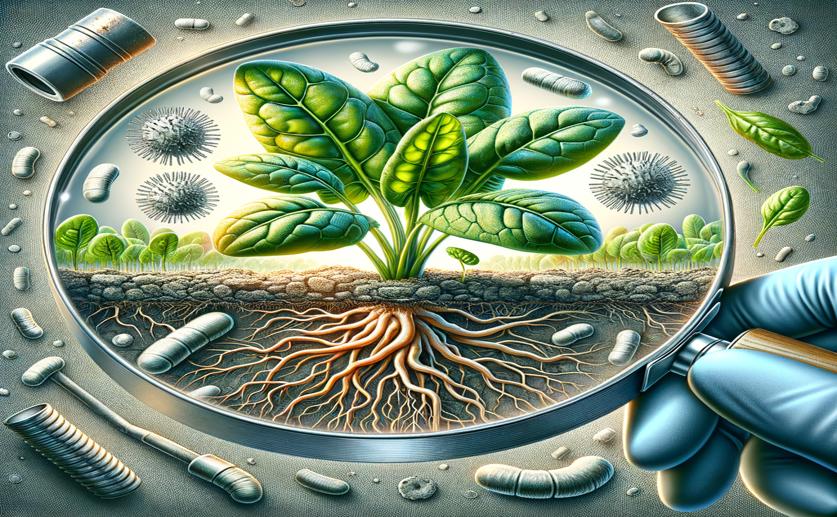
Bacteria Treatment Reduces Metal Stress in Spinach
Jim Crocker
28th March, 2024

Image Source: Natural Science News, 2024
Key Findings
- In a KUST study, heavy metals in soil reduced spinach growth and nutrient content
- Adding bacteria B. cereus and B. aerius improved spinach health and growth in contaminated soil
- These bacteria reduced plant stress indicators, suggesting less heavy metal damage
BiotechPlant ScienceAgriculture
References
Main Study
1) Inoculation of heavy metal resistant bacteria alleviated heavy metal-induced oxidative stress biomarkers in spinach (Spinacia oleracea L.).
Published 27th March, 2024
https://doi.org/10.1186/s12870-024-04757-7
Related Studies
2) Chromium toxicity in plants.
Journal: Environment international, Issue: Vol 31, Issue 5, Jul 2005
3) Plant growth-promoting rhizobacteria allow reduced application rates of chemical fertilizers.
4) The rhizosphere microbiome and plant health.
5) Heavy metal induced stress on wheat: phytotoxicity and microbiological management.



 16th March, 2024 | Greg Howard
16th March, 2024 | Greg Howard